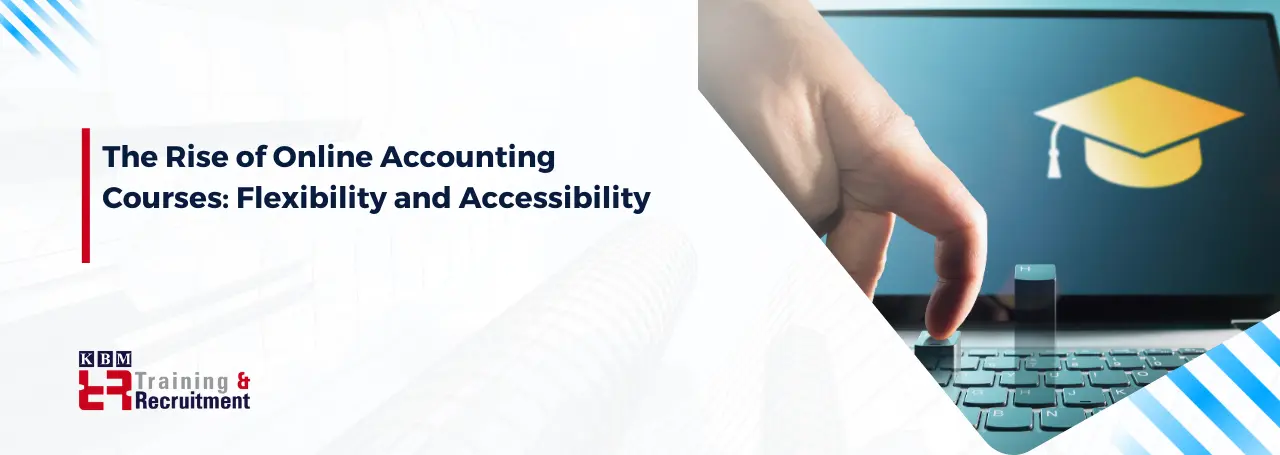The education landscape has evolved in recent years with the rise of online learning platforms. Notably, this shift has been mainly in accounting, where professionals and aspiring accountants increasingly turn to online courses for their education and professional development needs.
In this blog, we'll explore the reasons behind the surge in popularity of online accounting courses, focusing on their flexibility and accessibility to learners.
The Shift to Online Learning
Traditional approaches to education, such as attending in-person classes at a brick-and-mortar institution, have long been the norm in accounting education. However, technological transformation and changes in societal attitudes toward online learning have led to a rapid adoption of online education platforms in recent years.
These platforms offer various courses, including accounting programs, designed to cater to learners' diverse requirements and preferences.
Flexibility in Learning
One of the basic reasons for the growing popularity of online accounting courses is the flexibility they provide to learners. Unlike traditional classroom-based programs, online courses allow students to access course materials, lectures, and assignments at their own pace and convenience.
This flexibility is especially beneficial for professionals and individuals with busy lives who may find joining classes on a fixed timetable challenging.
Additionally, online accounting courses often offer asynchronous learning, meaning students can engage with course content at any time and from any location with an internet connection.
This flexibility enables learners to balance their studies with other commitments, such as work, family responsibilities, or personal interests, without sacrificing their educational goals.
Accessibility to Diverse Learners
Another key advantage of online accounting courses is their accessibility to a diverse range of learners. Online learning platforms welcome students from all walks of life, regardless of their geographical location, socioeconomic background, or physical abilities.
This inclusivity expands access to education and empowers individuals who may face hurdles to traditional forms of learning, such as those living in remote areas or with disabilities.
Furthermore, online accounting courses often offer a variety of learning formats, including video lectures, interactive quizzes, discussion forums, and downloadable resources. These diverse learning modalities cater to different learning styles and preferences, assisting students to engage with course content in a way that best suits their needs and preferences.
Whether visual learners, auditory learners, or kinesthetic learners, online courses provide options for all.
Quality of Instruction and Content
Despite the shift to online learning, there may be concerns about the quality of instruction and content offered in online accounting courses compared to traditional classroom-based programs.
However, many reputable online education platforms partner with experienced instructors and industry experts to develop and deliver high-quality course content that meets academic standards and industry requirements.
Online accounting courses often feature multimedia resources, real-world case studies, and practical exercises that provide students with hands-on experience and relevant skills applicable to their careers.
Additionally, online platforms leverage technology to enhance the learning experience with features such as interactive simulations, virtual labs, and personalized feedback mechanisms.
Integration of Technology and Innovation
Technology is essential in online accounting courses, enabling innovative teaching methods, interactive learning experiences, and real-time collaboration among students and instructors.
Online platforms leverage educational technologies, such as learning management systems (LMS), video conferencing tools, and cloud-based software applications, to facilitate seamless communication, content delivery, and assessment.
Moreover, online accounting courses often incorporate accounting software solutions and tools commonly used in the industry, such as QuickBooks, Xero, and Sage. By providing hands-on experience with these tools, students gain practical skills and familiarity with the latest accounting technologies, preparing them for the demands of the modern workplace.
Conclusion
The rise of online accounting courses represents a significant educational shift, offering learners unparalleled flexibility, accessibility, and innovation. With the convenience of any time, anywhere learning, online courses empower individuals to pursue their educational and professional goals without constraints.
As technology continues to evolve and online learning platforms expand their offerings, online accounting courses are poised to play a robust role in shaping the future of accounting education and workforce development.






















